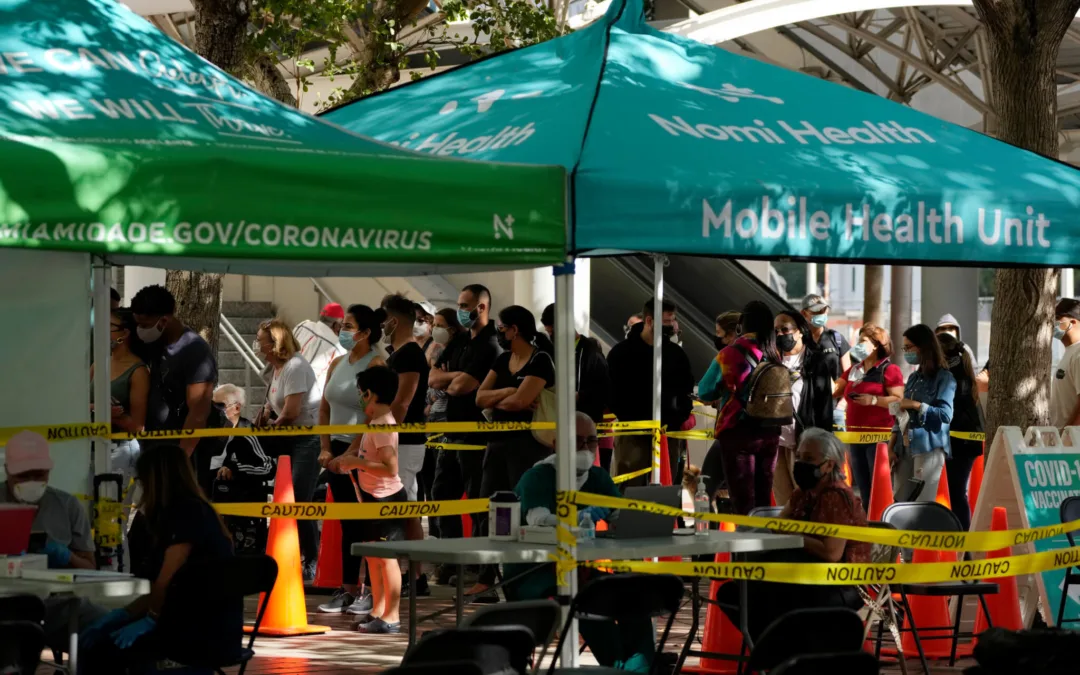
Image via Shutterstock
Stay at home and social distancing orders can increase anxiety and depression, but there are simple, yet effective ways, to channel those stressful feelings.
Restaurants are closed except for takeout or delivery, movie theaters are shuttered, and major events — such as concerts and sports — have been canceled. Adding to the stress of having to improvise a strategy to work from home, schools have been canceled and — alas!— the kids are home.
The Centers for Disease Control (CDC) have called for Americans to practice social distancing and limit interactions with others. But although at first this seemed like the perfect time to finally read all those books stashed by the bedside, or binge-watch every episode of “Killing Eve” on Amazon, the reality is that, after a while, even the biggest lover of solitude gets a little lonely, and even the closest of families begins to fray at the edges.
Hard-Wired for Connection
The reason for this is very simple. We humans are social animals. In other words, we are hard-wired for connection. So when we are deprived of the opportunity to interact with each other and the world at large, our brains react in very particular ways. Over an extended period, social isolation can increase stress and depression, as well as exacerbate physical health problems such as cardiovascular diseases.
“Our brain is a social organ. It nourishes itself on relationships with others,” says Isabella Paz, a Peruvian Psychotherapist with a practice in Santo Domingo, Dominican Republic. When we are connected to others, she explains, our brain releases dopamine, endorphins, and other hormones that promote mental and emotional well-being.
But the opposite often holds true when isolation elevates the stress response. Instead of feel-good hormones, cortisol — the so-called “stress hormone”— is released.
When this happens we are, in a very real sense, living in “survival” mode. We may feel nervous, tense and jittery, as well as sad or depressed. Sometimes we can even feel both at the same time.
RELATED: Coping With Quarantine: How Six People Are Dealing With Being Forced Into Isolation
To alleviate the negative psychological, emotional, and spiritual effects of this situation, in the video Ms. Paz offers a wellness plan to control stress levels. Here are some of the highlights:
Acceptance. This, she explains, can make the problem smaller, as we make it bigger by fighting it. Acceptance doesn’t mean we like it; it just means we recognize “it is what it is.” And that it is temporary.
Focus on the present. The mind often tries to guess the future in order to prevent an imagined catastrophe. According to Ms. Paz, it’s important to bring it back to the present and to focus on the here and now. Read, exercise, do a crossword puzzle or any activity that focuses the mind.
Be mindful of your inner dialogue. Ask yourself: What do I tell myself on waking up and what do I tell myself before going to sleep? Be sure these are positive, optimistic thoughts, as they will color your perception.
RELATED: Listen Up, It’s OK to Grieve Your Pre-Coronavirus Life
Don’t overdose on the news. Although it is important to stay informed, it is also important to control the amount of information one takes in. Too much can tax the brain and elevate already high stress levels. Use your social devices to stay connected to friends and loved ones.
Make a list of things you are grateful for. “I suggest that the moment you wake up, you give thanks for being alive,” says Paz. Listing 10 things, or just one, “will help you keep producing positive thoughts.”
Get the Help You Need
A 24-hour bilingual hotline is available to all Floridians to provide emotional support as they grapple with feelings of stress, anxiety, and grief due to the coronavirus pandemic. Florida Blue partnered with New Directions Behavioral Health to create the toll-free helpline, which connects individuals with licensed clinicians free of charge in both English and Spanish. This service is available to those who do not have insurance or have coverage with another health plan. The emotional support line can be reached at 833-848-1762.
RELATED: 10 Ways to Lower Your “Coronavirus Stress” Now
Politics

Teamsters and UPS Reach Tentative Deal to Avoid Strike, 340,000 Workers to Get Raises
The tentative deal represents a huge win for full- and part-time UPS Teamster workers, who would get significant pay raises and better working...



One Republican Senator Is Blocking 265 Military Promotions, Leaving the Marines Without a Confirmed Leader
Sen. Tommy Tuberville's decision means these military officers are not getting the pay raises they’re owed, cannot move their families to wherever...
Local News



Teamsters and UPS Reach Tentative Deal to Avoid Strike, 340,000 Workers to Get Raises
The tentative deal represents a huge win for full- and part-time UPS Teamster workers, who would get significant pay raises and better working...



One Republican Senator Is Blocking 265 Military Promotions, Leaving the Marines Without a Confirmed Leader
Sen. Tommy Tuberville's decision means these military officers are not getting the pay raises they’re owed, cannot move their families to wherever...




